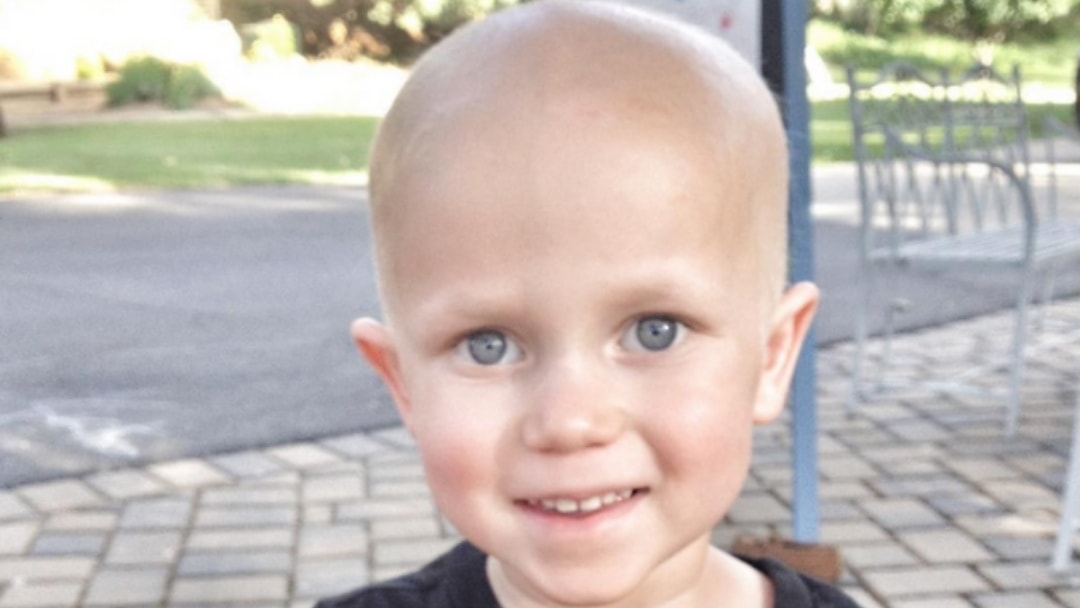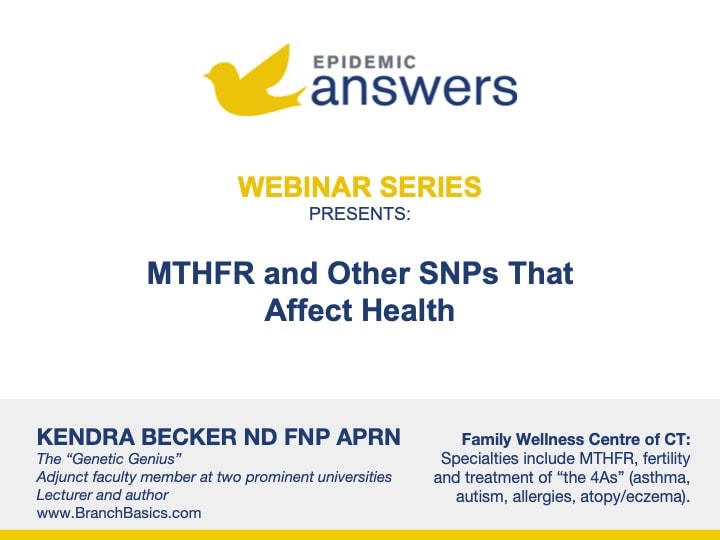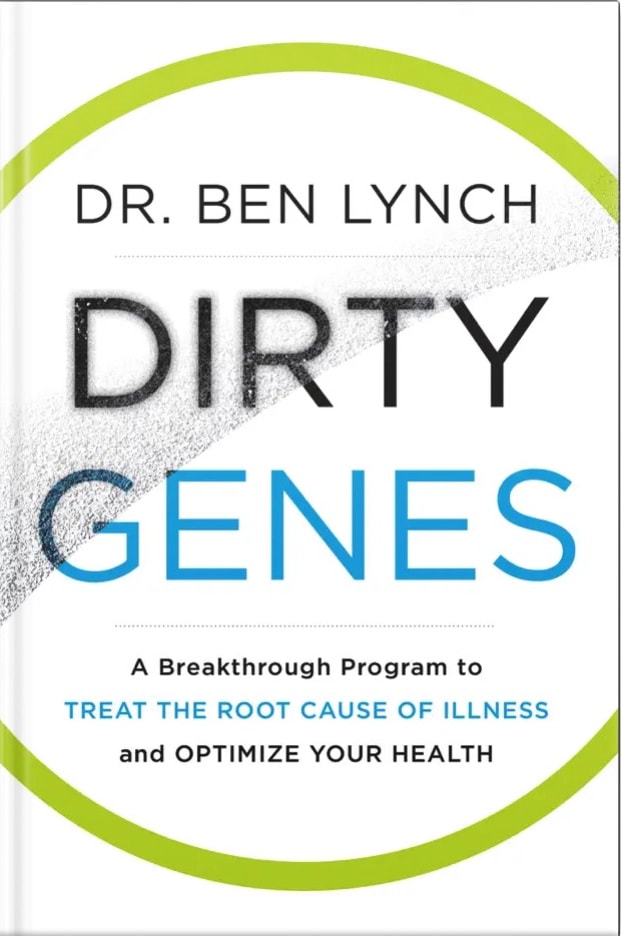Laurette Janak discusses the connection of autism, Alzheimer’s, cancer and depression in this post about methylation and folate deficiency.
Do you have a child with autism? A history of depression? A parent with Alzheimer’s? Some discoveries I made might interest to you. When I adopted my daughter, she was simply the girl I had always wanted. Little did I know what adventures her complicated medical issues would lead me into.
Folate Deficiency
My son Steven had been conceived through the help of nutritional therapies. I knew that because Emily had Down syndrome, vitamin therapy would be crucial for her. I read everything I could about her condition.
Kent MacLeod at Nutri-Chem, the Canadian company whose nutrients for Down syndrome are known world-wide, called me a “one-woman research institute.” I learned that children with Down syndrome have weakened immune systems and impaired folate cycles.
Folates are products of complex biochemical reactions through which our bodies convert a vitamin found in green leafy vegetables into substances responsible for various important metabolic functions. A folate deficiency are implicated in neural tube birth defects, vascular and heart disease, depression, memory loss, Alzheimer’s and various cancers.
Impending Cancer
Just before her third birthday, Emily’s blood work showed abnormally large red blood cells and high levels of folic acid: both red flags for impending leukemia. Although her body had adequate folate, it was not being converted into the correct form.
Imagine you want to park at a meter that accepts only quarters: A pocketful of nickels and dimes is useless. Like money, folate comes in a variety of forms and Emily’s had accumulated in a form that was unavailable for DNA synthesis. I knew that she could develop cancer, as a consequence of her DNA not replicating properly.
A few months later, after a routine pediatric medical procedure, she was diagnosed with acute lymphocytic leukemia. Getting cancer is like playing the lottery: the more tickets you buy, the more likely you are to win. Emily had purchased one ticket too many. Which ticket won her the cancer prize? An impaired folate cycle? Exposure to mercury? Arsenic from the environment? (Metals can compound folate cycle disruptions and inhibit DNA repair enzymes.) Or damage from the routine pediatric medical procedures?
I believe Emily’s impaired folate metabolism and metal detoxification contributed to her development of cancer. As if this were not bad enough, the doctors treated her leukemia with a chemotherapy drug that shuts down folate and knocks out metal detoxification. When the initial half dose produced no adverse reaction, they moved to full strength. My worst fears were realized: this drug damaged her brain and spinal cord. Emily lost speech and motor skills.
I was determined to find a way to treat Emily without further injury. I gave her tri-methyl-glycine (TMG) and methyl B12, which together increased her body’s ability to re-myelinate the nerves of her brain. She began to walk and talk again. Her leukemia went into remission, and she gradually got stronger.
Autism and Depression Link
So what does this have to do with autism and depression? Researcher Jill James, PhD showed that in a sample of 20 children with autism, all 20 had abnormalities in folate dependent homocysteine metabolism. According to medical literature, parents and relatives of children with autism have a higher-than-average rate of major depression. A subset of individuals with depression has elevated homocysteine levels, indicating they have a “functional folate deficiency.” The connection between depression and low levels of folate has been known in the medical world for decades.
Elevated Homocysteine and Folate Deficiency
Adverse health consequences associated with elevated homocysteine and folate deficiency include Alzheimer’s, Parkinson’s, heart disease, stroke and Down syndrome. Given the ease with which folate can be modulated in adults using a combination of vitamin B12, B6 and folate, anyone with a history of these disorders should be screened for total plasma homocysteine to minimize health risks.
In addition, consult your healthcare practitioner for a simple test to detect a defect in the MTHFR (methylenetetrahydrofolate reductase) enzyme, which can lead to folate deficiency and methylation defects. An inability to methylate properly, typically caused by an MTHFR defect, can lead to an inability to detoxify well.
Individuals on anti-depressants wishing to use folate should work with their healthcare practitioners to adjust dosage because folate can potentiate medications. As for Emily, she is doing well; she helped me present these findings at a local conference.
Still Looking for Answers?
Visit the Epidemic Answers Practitioner Directory to find a practitioner near you.
Join us inside our online membership community for parents, Healing Together, where you’ll find even more healing resources, expert guidance, and a community to support you every step of your child’s healing journey.
Sources & References
Elamin, N.E, et al. Brain autoantibodies in autism spectrum disorder. Biomark Med. 2014;8(3):345-52.
Frye, R.E., et al. Blocking and Binding Folate Receptor Alpha Autoantibodies Identify Novel Autism Spectrum Disorder Subgroups. Front Neurosci. 2016 Mar 9;10:80.
Frye, R.E., et al. Cerebral folate receptor autoantibodies in autism spectrum disorder. Mol Psychiatry. 2013 Mar;18(3):369-81.
Li, Y., et al. Association between MTHFR C677T/A1298C and susceptibility to autism spectrum disorders: a meta-analysis. BMC Pediatrics. 2020(20)449.
Mader, S., et al. The Role of Brain-Reactive Autoantibodies in Brain Pathology and Cognitive Impairment. Front Immunol. 2017; 8: 1101.
Rossignol, D.A., et al. Cerebral Folate Deficiency, Folate Receptor Alpha Autoantibodies and Leucovorin (Folinic Acid) Treatment in Autism Spectrum Disorders: A Systematic Review and Meta-Analysis. J Pers Med. 2021 Nov 3;11(11):1141.
Singh, V.K., et al. Circulating autoantibodies to neuronal and glial filament proteins in autism. Pediatr Neurol. 1997 Jul;17(1):88-90.
Singh, V.K., et al. Elevated levels of measles antibodies in children with autism. Pediatr Neurol. 2003 Apr;28(4):292-4.
Resources
Books
Lynch, Ben. Dirty Genes: A Breakthrough Program to Treat the Root Cause of Illness and Optimize Your Health.
MacLeod, Kent. Down Syndrome and Vitamin Therapy.
Walsh, William J. Nutrient Power: Heal Your Biochemistry and Heal Your Brain.
Yasko, Amy. Feel Good Nutrigenomics.




